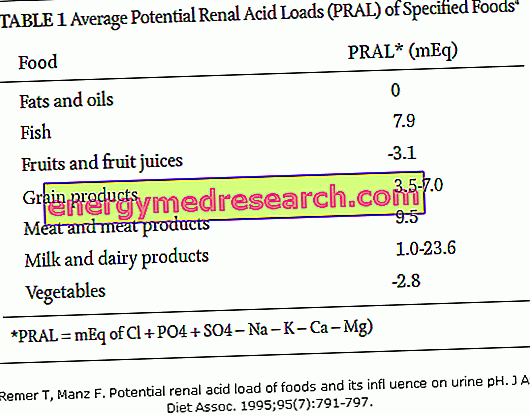BUSCOPAN ANTIACIDO ® is a drug based on ranitidine hydrochloride
THERAPEUTIC GROUP: Antacids, antiemetics and peptic antiulcer - H2 antagonist
IndicationsAction mechanismStudies and clinical effectiveness Usage and dosage instructionsWarnings Pregnancy and lactationInteractionsContraindicationsUndesirable effects
Indications BUSCOPAN ANTIACIDO ® - Ranitidine
BUSCOPAN ANTIACIDO ® is indicated for the occasional treatment of symptoms related to gastric hypersecretion such as heartburn and hyperacidity.
Mechanism of action BUSCOPAN ANTIACIDO ® - Ranitidine
BUSCOPAN ANTIACIDO ® is a drug based on ranitidine, an active ingredient belonging to the vast category of antacids and more precisely, based on its own mechanism of action, to that of antihistamines inhibiting histamine H2 receptor.
This active ingredient taken orally, in fact, is rapidly absorbed by the gastro-enteric mucosa, and concentrated mainly at the level of the stomach, inhibits the aforementioned receptors expressed on the surface of the parietal cells of the stomach, thus reducing gastric secretion.
The aforementioned mechanism is therefore accompanied also by a reduction in pepsin secretion and a significant decrease in the volume of gastric juice, which thus significantly reduces the typical symptomatology.
After its activity, Ranitidine is eliminated mainly via the kidney, through glomerular filtration and active tubular secretion.
Studies carried out and clinical efficacy
RANITIDINE IN PREOPERATIVE PROPHYLAXIS
Chest. 2009 Aug; 136 (2): 440-7. doi: 10.1378 / chest.08-1634. Epub 2009 Mar 24.
Study demonstrating that the use of Ranitidine may reduce the risk of nosocomial pneumonia associated with the use of histamine H2 receptor antagonists in cardiothoracic surgery patients undergoing pharmacological prophylaxis.
IPERSENSIBILITY TO RANITIDIN
Immunopharmacol Immunotoxicol. 2009; 31 (3): 414-6. doi: 10.1080 / 08923970902739078.
Italian study that re-evaluates the extensive protective use that is made of Ranitidine in light of the numerous new cases present in the literature that demonstrate the potential risks caused by hypersensitivity reactions to the drug.
SPORADIC PIROSI AND RANITIDINE TREATMENT
Acta Gastroenterol Latinoam. 2007 Dec; 37 (4): 231-7.
Work demonstrating the effectiveness of the association between antacid salts and ranitidine, in sporadically counteracting the classic symptoms associated with gastro-oesophageal reflux such as heartburn.
Method of use and dosage
BUSCOPAN ANTIACIDO ®
Effervescent tablets of 83.7 mg of Ranitidine hydrochloride equal to 75 mg of Ranitidine.
Generally we recommend taking a tablet as needed, not exceeding the maximum dose of 4 tablets per day, consulting your doctor before taking it.
An adjustment of doses may be necessary in patients suffering from renal diseases, the pharmacokinetic characteristics of the active ingredient are known.
Warnings BUSCOPAN ANTIACIDO ® - Ranitidine
Before taking BUSCOPAN ANTIACIDO ®, especially in the presence of persistent symptoms, it would be advisable to consult your doctor and investigate the underlying pathology responsible for the symptoms.
In fact, prolonged use of this drug could mask the presence of serious diseases, whose timely diagnosis determines their therapeutic success.
Particular caution in the use of BUSCOPAN ANTIACIDO ® should also be reserved for patients suffering from renal, hepatic, pulmonary and gastrointestinal diseases, taking care to always request the consultation and supervision of their doctor during the entire therapeutic process.
BUSCOPAN ANTIACIDO ® contains:
- Sodium, therefore its use should be done with particular caution in patients suffering from hypertension and undergoing a low-sodium diet;
- Aspartame, a potential source of phenylalanine, therefore harmful to patients with phenylketonuria;
- Sorbitol, which could be potentially problematic in patients suffering from hereditary problems of fructose intolerance.
PREGNANCY AND BREASTFEEDING
Given Ranitidine's ability to cross the placental barrier and the breast filter by exposing itself to pharmacologically active concentrations in the fetus and infant, it would be advisable to avoid taking BUSCOPAN ANTIACIDO ® during pregnancy and in the subsequent breastfeeding period.
Interactions
The pharmacokinetic and pharmacodynamic characteristics of Ranitidine require the patient taking BUSCOPAN ANTIACIDO ® to pay particular attention to the simultaneous intake of:
- Antacids, given their ability to reduce intestinal absorption of ranitidine;
- Diazepam, propanolol, theophylline and lidocaine, whose metabolism could be influenced by the inducing action on the cytochromial systems of Ranitidine;
- Drugs eliminated via the kidney, whose elimination kinetics could be further enhanced by Ranitidine, with a consequent reduction of potential therapeutic effects.
In any case, if it is necessary to combine the BUSCOPAN ANTIACIDO ® therapy with that with other drugs, the patient should immediately contact his doctor, exposing the need.
Contraindications BUSCOPAN ANTIACIDO ® - Ranitidine
The use of BUSCOPAN ANTIACIDO ® is contraindicated in case of hypersensitivity to the active ingredient or to one of its excipients or to other structurally related molecules.
Undesirable effects - Side effects
Despite the use of BUSCOPAN ANTIACIDO ® is generally safe and free of particularly serious side effects, the patient in therapy may experience symptoms such as constipation, nausea, vomiting, diarrhea and abdominal pain.
Fortunately, the clinically relevant adverse reactions characterized by alterations affecting the nervous system and hypersensitivity reactions to the active ingredient are rarer.
Note
BUSCOPAN ANTIACIDO ® is a drug not subject to mandatory medical prescription.



